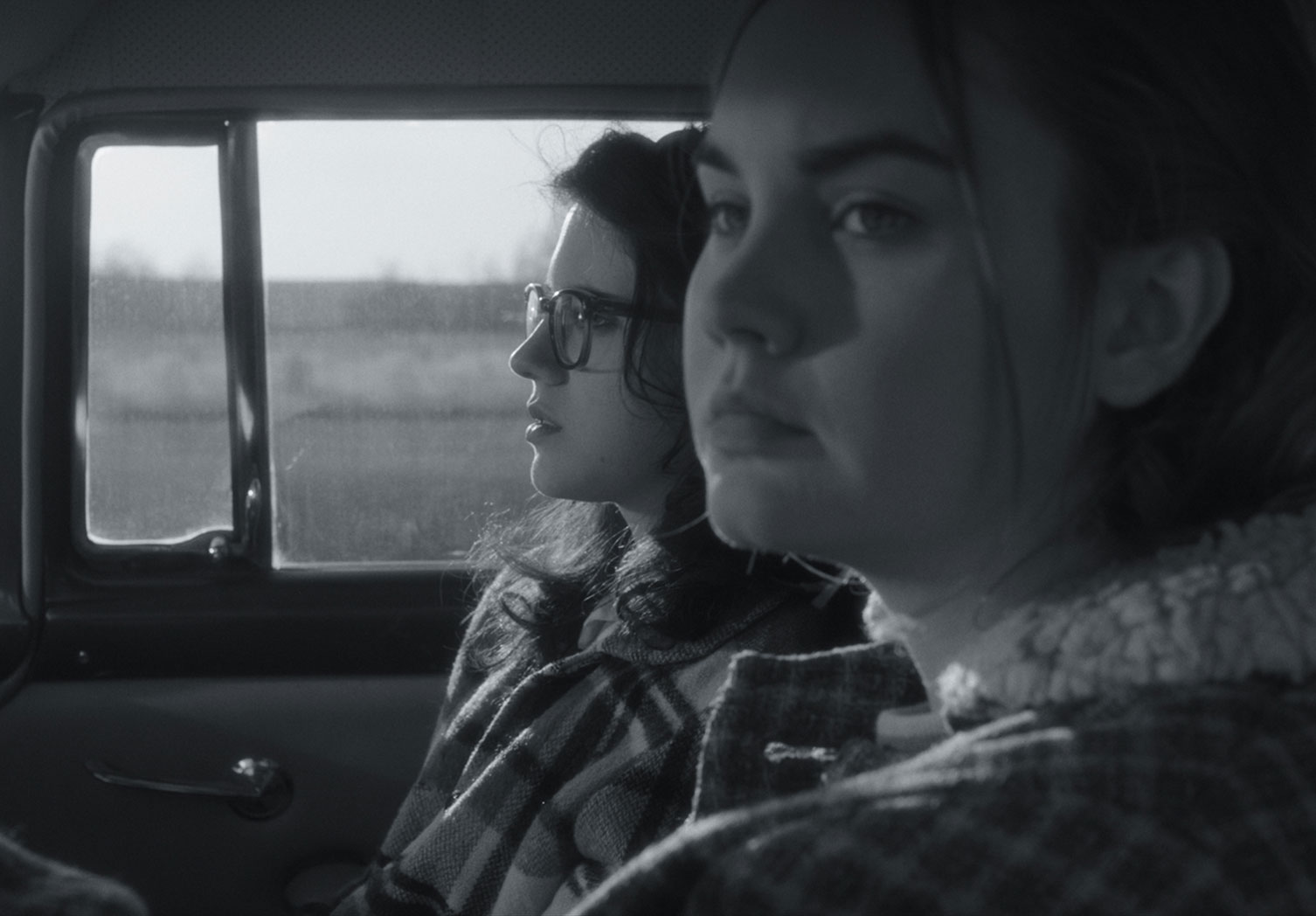Every so often in “To the Stars,” director Martha Stephens and cinematographer Andrew Reed will drop in a camera move incongruous to the cinematic language of the early 1960s when it’s set or films that have recreated the era in the decades since. A smooth pan across a room from the corner or a shot that begins looking at a character straight ahead with the camera eventually hovering above them for a bird’s eye view, the moments can be read as an act of compassion for nearly everyone in the small farming community of Wakita, Oklahoma where everyone would like to be seen differently than they are, but they also find something new in a tale of cultural repression that can reverberate in contemporary times.
By all appearances, nothing much happens in Wakita, but each household would seem to hide some drama as “To the Stars” enters through the side door of the Deerbornes’ farm where Iris (Kara Hayward) listens to a radio close to her ear each night to block out the squabbling between her father Hank (Shea Whigham) and mother Francine (Jordana Spiro), often concerned with how the latter seeks to control her. Iris isn’t any happier at school where a weak bladder has inspired a nickname (“Stinky Pants”) and to be seen with her is to constitute social suicide, according to the school’s queen bee Clarissa (Madisen Beaty) and her acolytes Rhonda (Lauren Ashley Stevenson) and Hattie (Sophi Bairley). Yet this doesn’t hold much weight for Maggie Richmond (Liana Liberato), a spitfire just arrived from Kansas City who is looking for a friend, but not inside the popular crowd where it seems she would be an ideal fit. Instead, she’s attracted to Iris, who in keeping to herself, holds far more mystery than the girls on the cheerleading squad.
Maggie starts joining Iris for a midnight swim in a local pond where the rest of town will never go, having been the site of a suicide years earlier, an event indicative of the unhappiness that courses throughout the rest of Wakita. In a town where so many unhappy couples that made commitments to each other out of societal expectations are now finding they were delaying the inevitable pain of denying themselves who they are in their significant other’s company, watching the friendship between Maggie and Iris flourish gives the black-and-white film plenty of color, from screenwriter Shannon Bradley-Colleary’s whipsmart script full of sharp dialogue and dimension for everyone in town to a rousing, anticipatory score from Heather McIntosh to Hayward and Liberato’s endearing performances. But for as much feels modern about “To the Stars,” Stephens shows no bones about indulging in some good old fashioned melodrama and like a house of cards, or more appropriately the third act of a Douglas Sirk film that Maggie and Iris might sneak out of school to see, presiding over a devastating finale triggered when everyone starts letting their guard down that nonetheless bears a light touch.
“People in small towns don’t need to know everything,” the town’s hairdresser Hazel (Adelaide Clemens, in a truly lovely, heartbreaking turn) confides to Maggie at one point, carrying the weight of having heard all their secrets in her shop and then some, and while “To the Stars” can make you feel that you know everyone in Wakita intimately, it beautifully makes the point that there are always some things about them that you can’t.
“To The Stars” will screen at Sundance on February 1st at 12:15 pm at the Eccles Theatre and February 2nd at 11:30 am at the Prospector Square Theatre in Park City.




